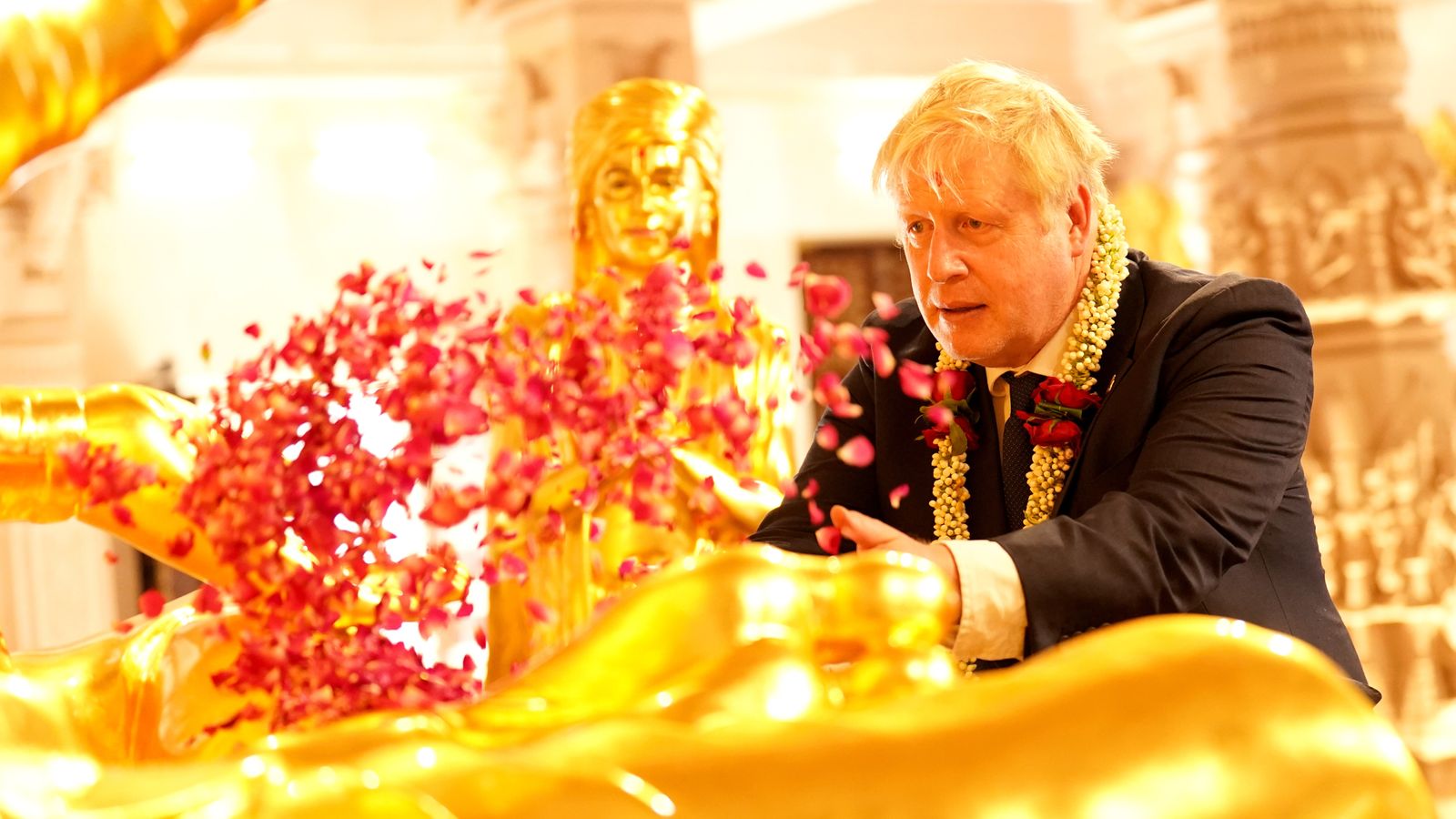The prime minister touched down in India on Thursday, hoping to leave the perils of partygate behind.
As his feet touched the tarmac in Gujarat, he was being handed bunches of flowers rather than fines; people waving Union Jack flags and giant Boris Johnson billboards lined the streets from the airport into the city centre of Ahmedabad.
But if the prime minister had hoped putting 4,000 miles between himself and his domestic difficulties would allow him to get back onto his trade agenda, he was sorely mistaken.
Politics Hub: Starmer says ‘political mood has changed’
Please use Chrome browser for a more accessible video player
The plan to beam upbeat talk of a possible multi-billion pound London-Delhi trade deal into the evening news bulletins back home was completely derailed as Mr Johnson’s backbenchers threatened mutiny.
As the PM embarked on a visit to the home of Mahatma Gandhi and took a trip in a chinook to visit a JCB factory, back in Westminster trouble was brewing.
His MPs were furious over his whips’ attempts to delay a parliamentary decision on whether to launch an investigation into the PM’s conduct until after the conclusion of the police inquiry and publication of the Sue Gray report.
Downing Street parties: Chancellor Rishi Sunak ‘extremely and sincerely sorry’ after receiving fine for attending lockdown-busting gathering for PM’s birthday
Downing Street parties: Boris Johnson to face investigation into whether he misled MPs about partygate
Boris Johnson says ‘I have nothing to hide’ and partygate row should not ‘endlessly go on’
Cue a giant U-turn from the PM, who on the plane over on Wednesday had insisted he thought the vote should be delayed, only to change his mind the following day and let the investigation go head. Previously the PM had hoped to kick this decision into the long grass. Now he will face an investigation by the Privileges Committee. The first sitting PM to be fined for law-breaking now also becomes the first PM to be investigated by parliament.
What does this whole sorry saga tell us? First, the prime minister has got to the point in this continued crisis where he’s perhaps more worried about disguising the level of mutiny on his benches than trying to avoid another probe. While the number of MPs who have either called for his resignation or refused to endorse his leadership into the next election stands at just 18, the disquiet is spreading – even if we don’t openly see it yet.
Steve Baker, a key Brexiteer who put Mr Johnson into Downing Street, withdrawing his support from the prime minister was a genuinely big moment. And the PM seemed to sense that too, telling me: “I understand people’s feelings. I don’t think that is the right thing to do.”
Please use Chrome browser for a more accessible video player
And second, he can’t really govern and get on with the job – his favourite phrase – while the partygate scandal rolls on. A U-turn to avoid rebellion at home means the PM is in trouble. So instead of asking him questions about trade, and Ukraine, I and others ended up asking him questions on partygate – and, at times, he seemed a bit irritated by that.
But what was most revealing in our interview was the moment the prime minister told me he’d changed his mind over the vote in the Commons because he had “nothing to hide”. The problem is many people don’t believe him. 78% of people polled by YouGov on Thursday think the prime minister’s lying over partygate, while many of his own MPs are deeply uncomfortable too. The fine has tipped a few over the edge, fears over more fines and public anger are beginning to push more.
This is a trip the prime minister had twice delayed because of COVID-19 and one he clearly wanted to enjoy. But instead, he’s weighed down by a scandal that he can’t shake. It’s a dangerous time to be away.







